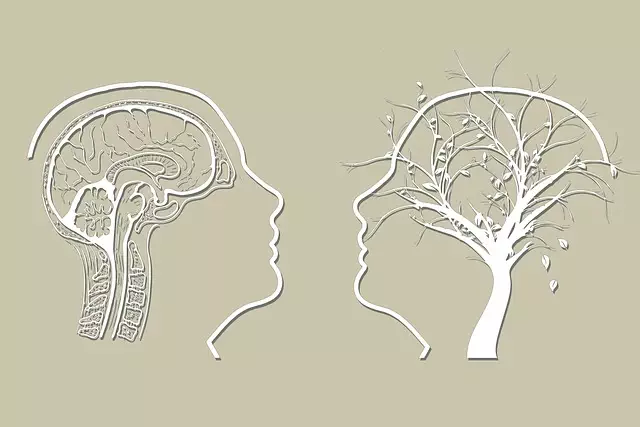Mental health policies, as shown by Arvada Kaiser Permanente, transform societal attitudes and access to care, reducing stigma and improving outcomes. Integrating services into primary care, using cultural competency training, and advocating for dedicated funding are key strategies. Long wait times and limited specialist availability prompt recommendations for improved patient access through direct feedback systems, transparent communication, diverse scheduling, and enhanced cultural sensitivity. The Arvada Kaiser Permanente mental health appointment number facilitates the first step towards better well-being.
Mental health policy is a pivotal determinant of individual and community well-being, shaping access to critical care services. This article delves into the intricate interplay between mental health policy analysis and advocacy, exploring its profound impact on societal health. We present case studies, focusing on Arvada Kaiser Permanente’s innovative approach to enhancing accessibility. Additionally, we examine the efficiency of mental health appointment systems and propose advocacy strategies to address barriers, aiming for a more inclusive and effective mental healthcare landscape, leveraging the success of Arvada Kaiser Permanente’s model, especially regarding mental health appointment management.
- Understanding Mental Health Policy and Its Impact
- Arvada Kaiser Permanente: A Model for Access
- The Appointment System: Efficient or Barriers?
- Advocacy Strategies for Better Mental Healthcare
Understanding Mental Health Policy and Its Impact

Mental health policy plays a pivotal role in shaping society’s approach to well-being and significantly impacts individuals’ access to quality care. At its core, it involves understanding and addressing the complex interplay between mental health issues and societal structures. For instance, consider Arvada Kaiser Permanente, where initiatives aimed at improving mental health services reflect broader policy changes. These policies influence not only the availability of resources but also how people perceive and seek support for their mental well-being.
The impact of such policies is profound, fostering environments that promote inner strength development and encourage positive thinking. By focusing on emotional regulation, these strategies aim to reduce stigma and enhance accessibility to care. This, in turn, can lead to better outcomes for individuals struggling with various mental health challenges, ultimately contributing to a more resilient and supportive community.
Arvada Kaiser Permanente: A Model for Access

Arvada Kaiser Permanente stands as a beacon of accessible mental health care, offering a model that advocates and policymakers should take note of. This healthcare organization has successfully integrated comprehensive mental health services into its primary care setting, ensuring that patients can access specialized care alongside their routine medical needs. The key to their success lies in a holistic approach that includes regular mental health screening, a dedicated team of professionals, and a user-friendly appointment system. Patients can easily schedule Arvada Kaiser Permanente mental health appointment number through various channels, promoting timely access to support.
By prioritizing resilience building and cultural competency training for healthcare providers, Arvada Kaiser Permanente fosters an environment where diverse communities feel seen and heard. This approach, coupled with community outreach program implementation, ensures that mental health services are tailored to meet the unique needs of different demographics. Their model demonstrates that accessible, culturally sensitive care can significantly improve mental well-being within a community, setting a benchmark for other healthcare institutions to emulate.
The Appointment System: Efficient or Barriers?

The appointment system at Arvada Kaiser Permanente for mental health services has been a topic of interest and concern. While efficient scheduling is crucial for accessible healthcare, many patients face challenges that hinder their ability to receive timely care. The process often involves lengthy wait times and limited availability, particularly for specialized therapists or cultural sensitivity in mental healthcare practice areas. This can be a significant barrier, especially for individuals dealing with urgent issues like depression prevention.
Effective communication strategies are essential to addressing these concerns. Patients may benefit from direct feedback systems that allow them to express difficulties with the appointment process. Additionally, promoting transparency regarding expected wait times and providing various scheduling options could enhance patient satisfaction. Ensuring cultural sensitivity in mental healthcare practice is also vital, as it can create a safer and more inclusive environment, encouraging individuals to seek help without barriers.
Advocacy Strategies for Better Mental Healthcare

Advocacy plays a pivotal role in shaping mental healthcare policies and ensuring better access to services. One effective strategy is to engage with local representatives, sharing personal stories and statistics to highlight the community’s need for enhanced mental health support. This can include lobbying for increased funding dedicated to mental wellness coaching programs and the development of specialized services tailored to specific demographics.
For instance, organizations like Arvada Kaiser Permanente can lead by example, promoting initiatives such as mood management workshops and burnout prevention strategies for healthcare providers. By amplifying these efforts, advocacy groups can foster systemic change, making mental health care more accessible and integrated into primary healthcare settings, ultimately improving the well-being of the community at large.
Mental health policy advocacy is crucial in ensuring equitable access to quality care. As demonstrated by Arvada Kaiser Permanente’s successful model, integrating mental health services into primary care can significantly improve accessibility. However, challenges like inefficient appointment systems require attention. By employing effective advocacy strategies, such as increasing awareness and advocating for policy changes, we can address barriers to care. The article highlights the importance of continuous efforts to enhance mental healthcare systems, with a specific focus on reducing wait times and improving patient outcomes, exemplified by the positive impact seen at Arvada Kaiser Permanente. Moreover, understanding successful initiatives like this one can guide future policy decisions, ultimately fostering better mental health support for all.






